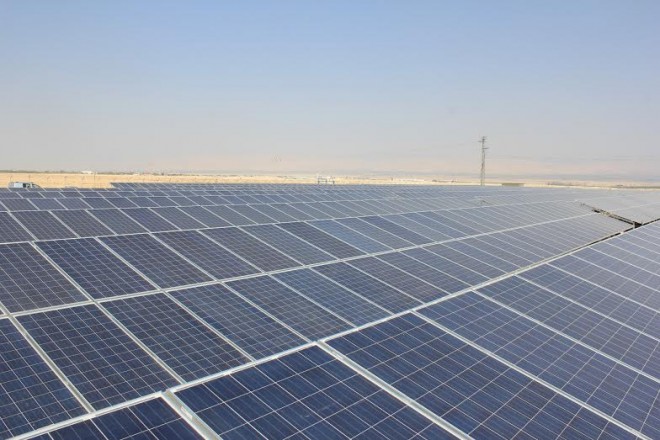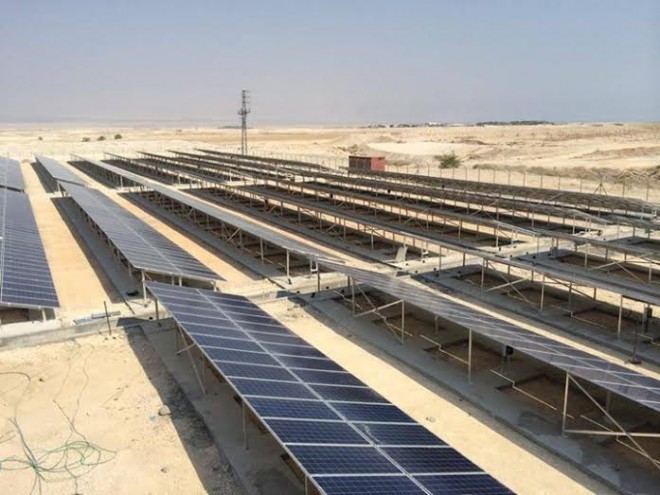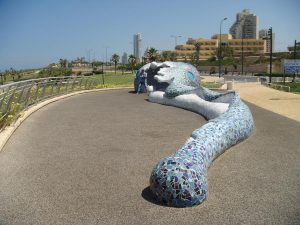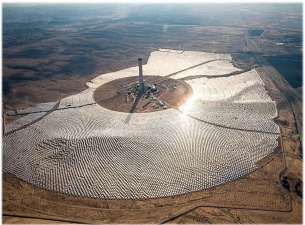 We don’t often hear good news coming from Palestine, but solar energy advances for Palestinian households are something to celebrate. The Dead Sea Photovoltaic Generating Plant offers drastically reduced prices for Palestinians struggling to pay their energy bills and its first phase is now open and underway.
We don’t often hear good news coming from Palestine, but solar energy advances for Palestinian households are something to celebrate. The Dead Sea Photovoltaic Generating Plant offers drastically reduced prices for Palestinians struggling to pay their energy bills and its first phase is now open and underway.
Traditionally Palestinians have had to rely on Israel for their electricity. They do import some electricity from Jordan and Egypt, but it’s done little to reduce their dependence on Israeli energy suppliers. It’s estimated that around 80 percent of Palestinian electricity is imported.
The electricity tariff in the Palestinian authorities is also about 15 percent higher than in Israel, even though the GDP for Palestine is much lower. Palestine is a territory poor in wealth, but also in natural energy resources such as natural gas and fossil fuels which can be generated into electricity. Energy security is a controversial topic.
The opening of the 710 kW first phase of the planned 1.5 MW Dead Sea Photovoltaic Generating Plant has gone some way in improving the situation, offering drastically lowered energy prices for Palestinian homes in East Jerusalem. The plant uses solar cells, also known as photovoltaic cells, and turns sunlight into electricity and is the biggest photovoltaic (PV) installation producing electricity in Palestine. It’s based near Jericho and is 258 meters (846 ft) below sea level.
The organization, Future for Palestine, is funding the $1 million solar project. It’s headed by Salam Fayyad, the former prime minister of the Palestinian National Authority. Future for Palestine has already been subsidizing electricity bills for 5,000 families suffering from poverty in East Jerusalem which amounts to $14 per family and reduces their bills by an average of 25%. To ensure this support for Palestinian families would be sustainable in the future, the organization decided to fund the new solar project.
Msader for Energy systems, the Palestinian company who built the plant, wanted to build and design and a solar energy system that would give long-term, reliable energy output in desert climate conditions with very hot and dry weather. Abelnaser Dwaikat, the managing director of the firm told Green Prophet that there was a need to promote and develop a resilient and sustainable energy supply for Palestinians. He said: “ It is crucial to focus on reducing dependence on energy imports and increasing the utilization of renewable energy sources available in Palestine.”
Given the high number of sunny days in Palestine, increased reliance on solar energy is very feasible. Yet Abdelnasser noted that there were challenges with the introduction of this type of green energy. “Solar PV and photovoltaic systems are yet to fully take off in Palestinian areas due to high initial costs associated with such systems,” he said.
Yet he believes that in the future these systems will be a leading source of clean and independent energy for the Palestinian people. “It’s a very potential market for solar energy as already the Palestinians are using 80% of solar thermal heating and the photovoltaic system should be the same percentage in the coming year, Mr Dwaikat said.”
The second phase of the Dead Sea Photovoltaic Generating plant will start in mid-2015 and should be delivered by end of this year.



